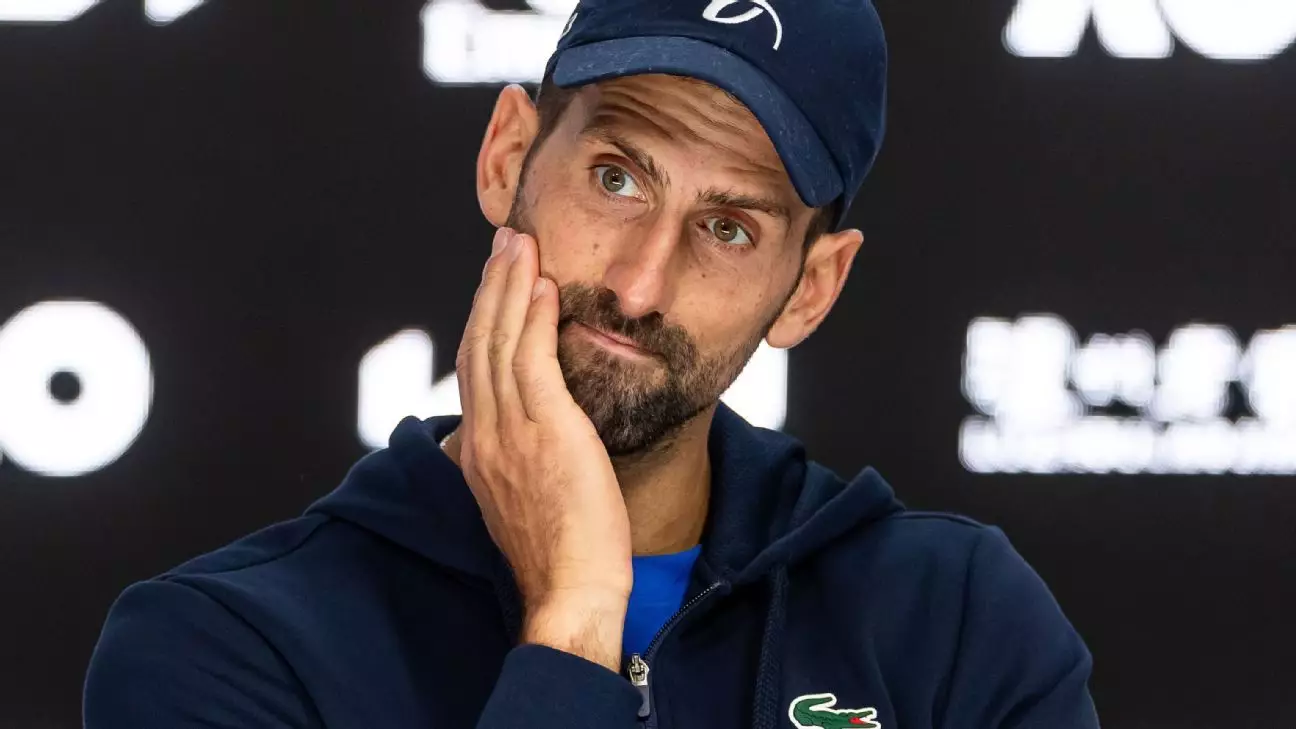In a landscape increasingly dominated by the complexities of governance and economic equity, Novak Djokovic has positioned himself as a vocal advocate for the rights of professional tennis players. At a recent pre-tournament press conference during the Miami Open, Djokovic emphasized the pressing need for players to secure a more significant share of the sport’s revenues, along with increased influence over their working conditions. This context is crucial as the Professional Tennis Players’ Association (PTPA), which Djokovic co-founded, has initiated an antitrust lawsuit claiming monopolistic practices by tennis governing bodies worldwide.
While Djokovic refrained from taking a direct legal stance by not including his name among the plaintiffs in the case, he made it clear that his intent was to empower a collective voice among players. He believes that by withholding his name, he is inviting other athletes to take a stand in advocating for better representation and conditions in professional tennis. This decision raises questions about leadership, responsibility, and the dynamics of athlete activism within the sport.
Player Solidarity Versus Individual Opinions
The PTPA’s recent lawsuit-aiming to address what it terms a “cartel” controlling player pay and work environments-is backed by testimonials from over 250 players across both genders. Among the plaintiffs are notable figures like Nick Kyrgios and Sorana Cirstea, which adds a layer of credibility to their collective grievance. However, the divide in opinions among players, as illustrated by Carlos Alcaraz’s public dissent, casts a shadow on the movement for change. Alcaraz expressed his dissatisfaction—highlighting a lack of communication regarding the lawsuit and uncertainty about its claims.
This rift among players highlights a critical condition within the sport: while many athletes advocate for systemic reform, others are hesitant or outright against the current strategy. Djokovic himself acknowledges that while he resonates with several points raised in the lawsuit, he also harbors reservations. This lack of consensus raises essential questions about the efficacy of the PTPA and whether it genuinely represents the varied interests within the tennis community.
Potential Outcomes and the Bigger Picture
Djokovic’s concerns extend beyond mere legal frameworks; they touch upon broader issues of equity and fairness in a sport that, despite its glitz and glamour, harbors systematic issues. The disparity in prize money, working conditions, and global influence for players remains a significant hurdle. “I’ve never been a fan… of division in our sport,” Djokovic stated, demonstrating his desire for unity among players and governing bodies to resolve these challenges. His emphasis on collaboration reflects an acute awareness that sustainable change requires collective action rather than polarization.
As tennis navigates this tumultuous period, the outcomes of the lawsuit will likely have far-reaching implications for the sport’s future. In an industry that stands at a crossroads, the choices made by its key stakeholders will either reinforce traditional power dynamics or pave the way for a more equitable and inclusive professional landscape. Djokovic’s actions and sentiments serve as a reminder of the ongoing struggles faced by athletes seeking greater agency within their industry. The question remains: will tennis find a way to foster dialogue and solidarity, or will it succumb to the divisions that threaten its integrity?


Leave a Reply